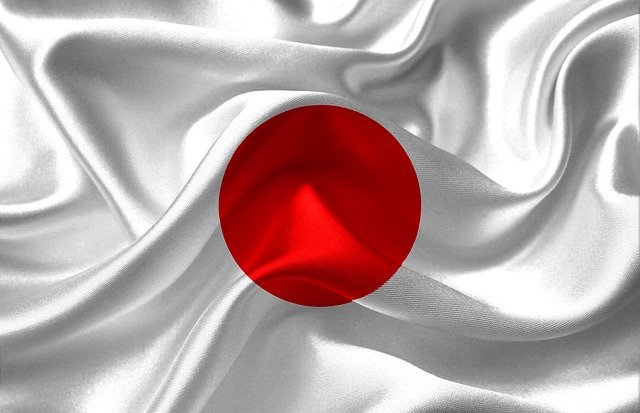How to buy Japanese shares? - invest in the Japanese stock market (2024)
Investing in Japan can be interesting. However, it is important to first read this analysis of investing in Japan. In this way, you can determine whether investing in Japan suits your current investment strategy. You can also see with which parties you can buy Japanese shares against low fees.
How can you invest in Japan?
Many investors pay particular attention to returns. However, it is also important to keep a close eye on costs. When you lose sight of the costs, you also lose sight of the return. But where is the best place to invest in Japan?
A good party to trade actively in Japan is Plus500. With Plus500 you can actively trade on the country's stock market through CFDs. However, you do not trade directly in the stocks. Instead, you invest in the short-term price differences of the shares. Would you like to try active trading without risk? Then open a free demo account by using the button below:
Where can you buy Japanese stocks?
Would you prefer to invest in Japan in the long term? Then you can do so by buying stocks or by buying an EFT on the Japanese stock index. A good broker where you can invest in Japanese shares is eToro. At eToro, you don't pay commissions when you buy & sell Japanese shares:
Investing in Japan table of contents
- Why is it smart to invest in Japan?
- Why did the Japanese economy shrink?
- What about growth in Japan?
- What are the future developments?
- How do companies operate in Japan?
- What is the economic situation in Japan?
- What are well-known Japanese stock market indices?
- What is the role of the exchange rate?
- How to invest wisely in Japan?
Why is investing in Japan interesting?
Investing in Japan can be very promising: this is due to the fact that the stock market is not yet in the spotlight. Analysts spend much more time on American stocks than Japanese shares. However, this seems to be slowly changing. Warren Buffett for example, invested heavily in various Japanese companies in 2020.
When investing in Japan, it is important to remember that the stock market contains many cyclical shares like car manufacturers and banks. These stocks do particularly well when the global economy is on the rise.

In the meantime, you can also see that Japanese institutional investors are investing more in Japan. You used to see that Japanese pension funds put a lot of their assets in foreign shares. Now that this focus has shifted to their market, the way has been paved for a further rise in stock prices.
The reforms undertaken by Japan's former Prime Minister, Abe, have also given business a major boost. For example, the Central Bank bought up bonds and shares and stimulated the issuance of money through fiscal incentives.
Companies, too, are increasingly turning the tables: stockholders are being listened to more, and capital reserves are being used more often to pay dividends and buy back their own shares. This can boost the return on Japanese stocks.
So Japan is certainly promising and it can be interesting to invest some of your assets in Japan. Especially when you consider that many Japanese shares are still significantly undervalued compared to American stocks.
How to buy Japanese stocks in 3 steps?
Before you buy your first Japanese shares, you need to go through a few steps. In this article we will look at how you can best invest in Japan as a foreigner.
Step 1: choose a reliable broker
Before you can buy Japanese stocks, you must first choose a reliable broker. Luckily, most brokers are properly registered with a regulator and will not do crazy things with your money. Do you want to know at which brokers you can invest in stocks cheaply? Then immediately compare the best brokers on our brokers comparison page:
Step 2: select a share
Now that you have an account with a broker, you still need to decide which Japanese stock to buy. It is advisable to first do sufficient research into the company you are considering investing in. It is not only the economy of Japan that you should look at: there are strong differences in how various sectors perform.
There are several ways to determine whether it is smart to buy Japanese shares. For example, you can do this by applying fundamental or technical analysis. Only when you are sure you want to buy a stock, you can place an order.
Step 3: placing an order
Placing an order to buy a Japanese stock is often done quickly. Within the software program of your broker you can choose between a market order and a limit order. With a market order, you open the investment position at the best available price and with a limit order, you only open the investment when a certain stock price is reached.
After you have placed an order you can immediately see how your investment is doing. It is advisable to regularly check how your investments are performing. This way you can decide whether you want to invest more or less money in Japan.
Why did the Japanese economy perform badly for so long?
The all-time high of the Japanese Nikkei index dates from 1989: after that the economy performed poorly. The Japanese stock markets rose sharply which was due to innovative companies such as Toyota, Sony and Panasonic that created a lot of jobs. This created an overly optimistic picture, with banks lending money to people who actually did not have the creditworthiness to pay them back.
The Bank of Japan tried to raise interest rates to prevent this overheating, but to no avail. In the 1990s, the bubble snapped and a long period of deflation emerged as consumers spent less. This period is often called the lost decade.
Limited growth
Japan is a country with structurally low economic growth. Growth is around one percent each year, which is not very high compared to many other countries. This is partly due to the mostly old population. Old people produce less and cost a country money.
However, when you consider that the old population is growing, and the working population is declining, Japan is not doing so badly anymore. After all, with this ever smaller, productive population, they still manage to make a profit.

Openness increases
Another point that can make investing in Japan more interesting is the fact that the country is becoming increasingly open. Previously, Japan was a rather closed country. Nowadays, however, more and more tourists are coming to Japan. The country has also decided to organize the Olympic Games and in 2025 they will hold the world expo in Osaka. These kinds of big, international events can attract a lot of attention to a country.
The country is technologically advanced and there are many interesting companies that could be worth an investment. With these technological developments they can also work on a larger market abroad.
Renewal
The corporate culture in Japan is also changing rapidly. In 2015, for example, a new governance code was decided within the Tokyo Stock Exchange. Previously, you could see that many companies were managed inefficiently and traditionally.
Friends, for example, came to power sooner and no innovations were made within companies.
This seems to be changing: Japanese companies dare to raise the prices of their products again and companies are managed better. This changed mentality results in higher profit margins, which increases the profitability of Japanese companies.
Economic Situation
Japan is a country with high government debts. The interest rate in the country was kept on zero percent for a long time. This allows companies to borrow money at favourable rates, which of course can stimulate further investments.
The Japanese yen is a fairly expensive currency which sometimes makes competing with foreign parties difficult. Nevertheless, Japanese companies regularly succeed in competing by saving costs and working more efficiently. Investing in Japanese companies by buying shares can therefore be interesting.
Known stock market indices
Well-known stock exhibitions in Japan are the Topix and the Nikkei. The Topix stands for Tokyo Stock Price Index which exists since 1968. It is a capital-weighted index of around 1700 shares listed on the Tokyo Stock Exchange. The Topix gives a comprehensive overview of the Japanese stock market.
Internationally known is the Nikkei-Index. The Nikkei index consists of 225 liquid shares and it is a price weighted index. The index is set up by a Japanese financial newspaper. The Nikkei is better known, but not necessarily better.
Famous ETF’s
- Lyxor Japan (Topix)
- istocks Core MSCI Japan
Pay attention to the exchange rate
When investing in Japanese shares, it is important to keep a close eye on the exchange rate. When the Japanese Yen suddenly becomes worth less against your currency, you suddenly get less of your own currency back for your investment. You can hedge against this risk by using put options.
Latest tips for investing in Japan
When investing in Japan, it is important to do so in a sensible way. In any case, only invest with money that you can spare for a while. That way you don't suddenly have to sell your portfolio out of panic.
Another tip is that you should always have a plan. Don't buy Japanese stocks haphazardly because this looks tough on you. No, examine the shares and dive into the figures. Is the company doing well and does the company not have to deal with extremely high debts? Then you can certainly consider buying the share.
